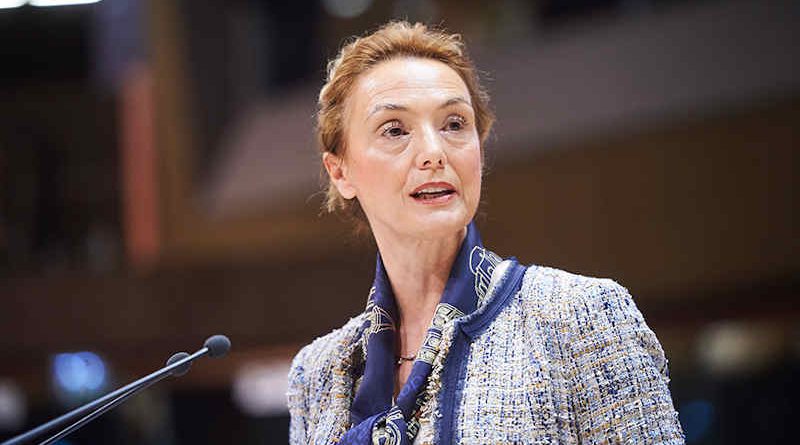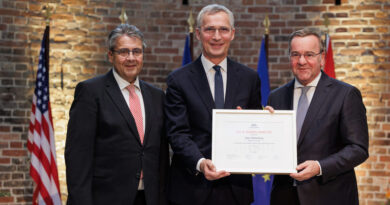Help Victims of Sexual Violence in Ukraine: Marija Pejčinović Burić

Help Victims of Sexual Violence in Ukraine: Marija Pejčinović Burić
Among over seven million refugees so far, 90% are women, girls and children, who are particularly vulnerable to sexual violence and human trafficking.
The Council of Europe (COE) Secretary General, Marija Pejčinović Burić, has said that Europe must help victims of sexual violence in Ukraine. Nine months to the day that war in Ukraine began, there are increasing reports of alleged war crimes, including sexual violence against women and girls.
Sadly, she said, history is repeating itself. Rape and other forms of sexual violence committed by combatants during armed conflict are as old as war itself. “We thus mark this year’s International Day for the Elimination of Violence Against Women (25 November) on a sombre note. But the tremendous assistance offered by many of our member states to millions of forcibly displaced people also gives us hope,” said the Secretary General.
Among over seven million refugees so far, 90% are women, girls and children, who are particularly vulnerable to sexual violence and human trafficking. Victims face horrible humiliation and a wide range of risks, from unwanted pregnancies and sexually transmitted infections to psychological and physical trauma.
In a statement released on November 24, Marija Pejčinović Burić said hospitals and medical doctors need to be equipped to respond to rape as part of a co-ordinated multi-agency response, and medical and forensic examinations must be ensured, as does immediate and longer-term trauma care. Survivors of gender-based violence among refugees need access to this type of support and counselling in a language they feel comfortable in and understand.
As seen from prior conflicts, specialized counselling will be needed to address enduring trauma to reduce stigma and secondary victimization that can develop over time. Indeed, sexual violence in conflict zones entails both immediate and long-term consequences, as evidenced for example in reports published this month from GREVIO, the Council of Europe’s independent expert body responsible for monitoring implementation of the Council of Europe Convention on preventing and combating violence against women and domestic violence (also known as the Istanbul Convention).
According to the UNHCR, women, girls and children are facing risks of human trafficking, as acknowledged via information obtained from NGOs working with refugees on the ground.
That sexual violence in conflict zones is a global challenge is illustrated in contemporary reports of rape threats against female protestors in Iran for example. Open to countries worldwide, the Council of Europe’s Istanbul Convention recognises this violence as a violation of essential human rights, as well as a form of discrimination against women.
“By providing guidelines to protect victims and punish perpetrators, including in wartime, the Istanbul Convention has become more important than ever, and I encourage countries worldwide to join it,” said the Secretary General.






